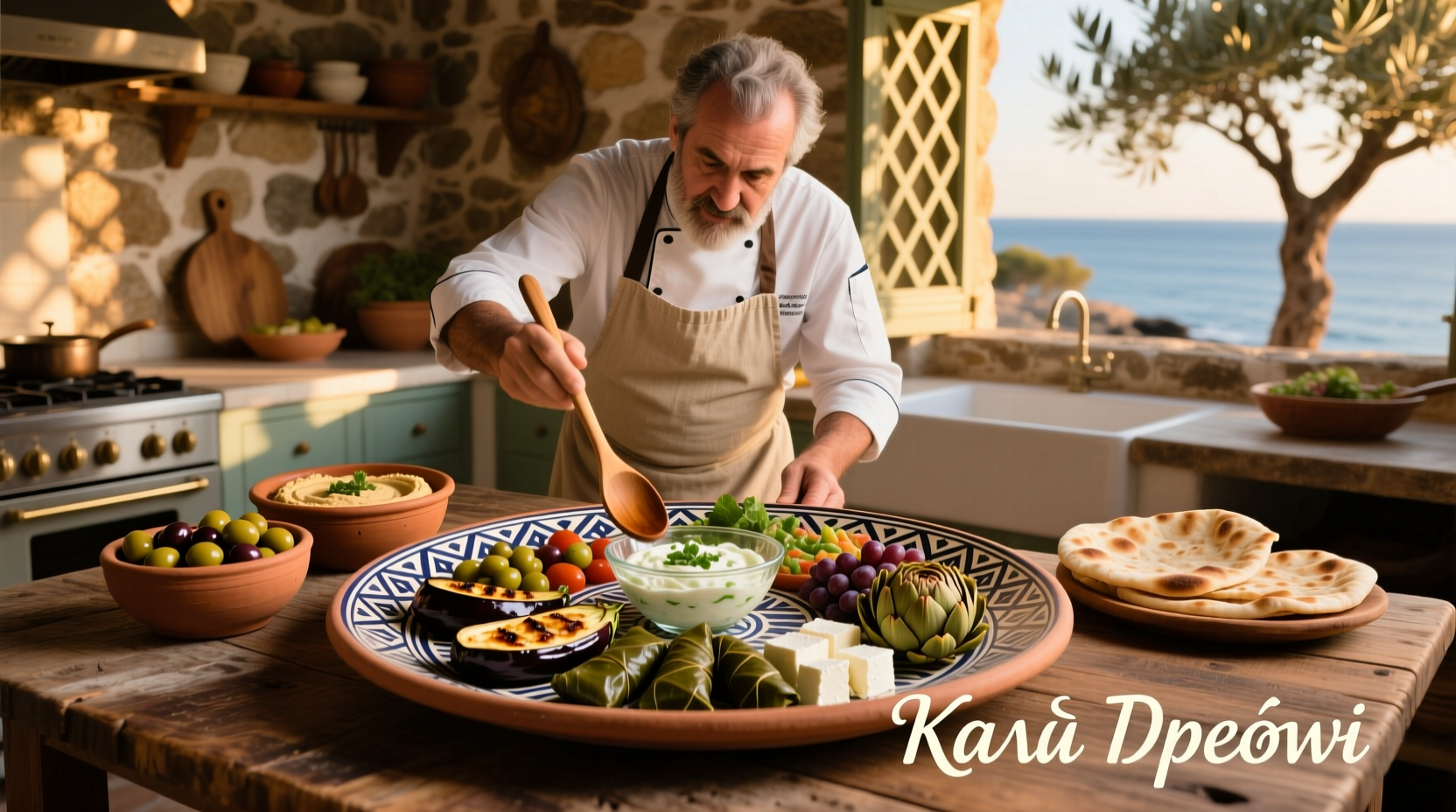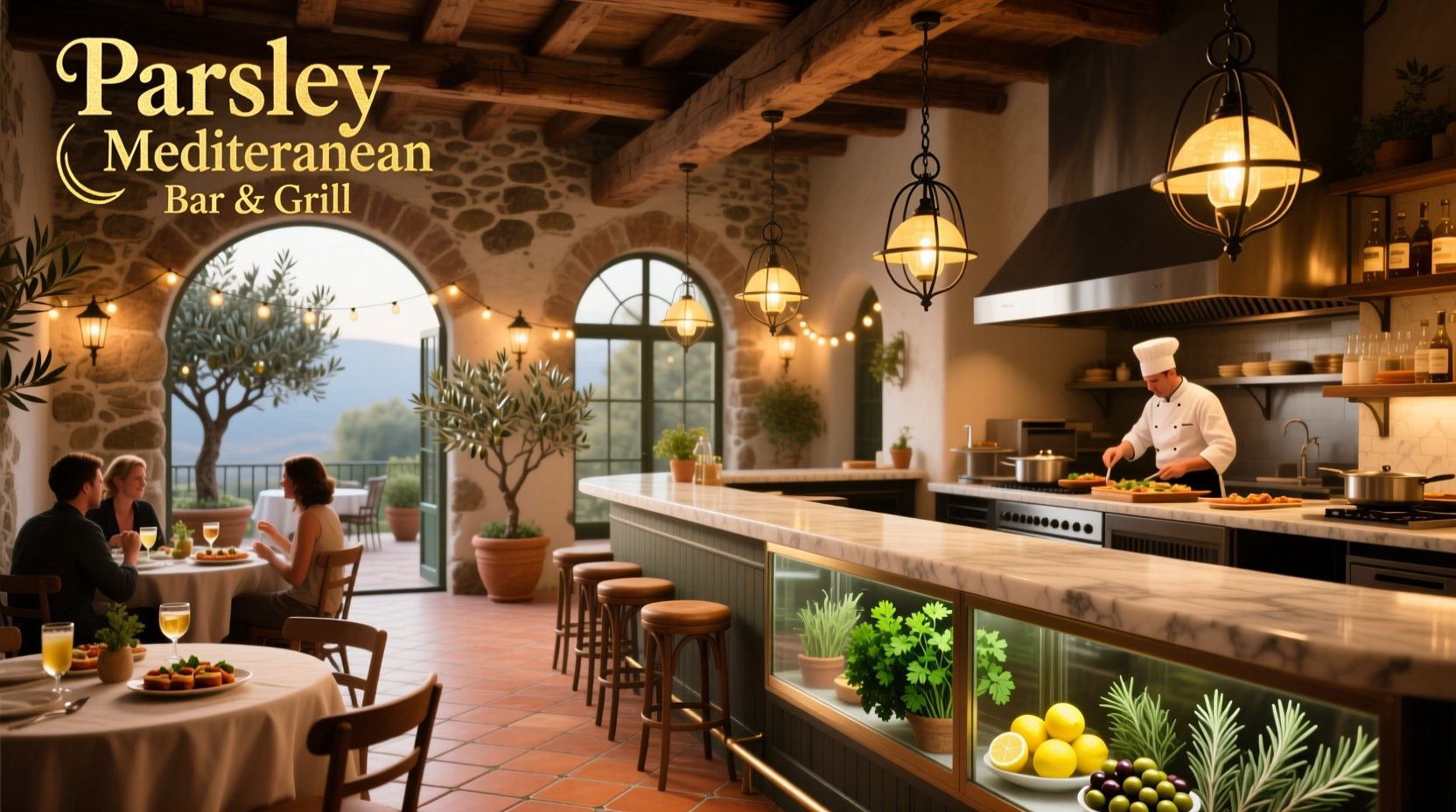Discover why Parsley Mediterranean Bar & Grill has become a destination for authentic Mediterranean flavors in Chicago. This comprehensive guide reveals what sets this establishment apart from typical Mediterranean restaurants, with insights into their sourcing practices, cooking techniques, and menu highlights that honor regional traditions while offering contemporary appeal.
What Makes Parsley's Mediterranean Cuisine Stand Out
Unlike many restaurants that blend Mediterranean cuisines into a generic concept, Parsley maintains distinct regional authenticity. Their menu is carefully curated to represent specific culinary traditions from across the Mediterranean basin, with dishes prepared using time-honored techniques passed down through generations.
The restaurant sources ingredients with remarkable attention to origin. Their olive oil comes directly from family-owned groves in Crete, while spices are hand-selected from markets in Istanbul and Marrakech. This commitment to authenticity creates flavor profiles that transport diners to the coastal villages and bustling markets of the Mediterranean.
| Regional Specialty | Signature Dish | Traditional Preparation Method |
|---|---|---|
| Greek | Moussaka with béchamel topping | Layed in terra cotta dishes, slow-baked |
| Turkish | Adana kebab with sumac onions | Hand-minced lamb, grilled over oak charcoal |
| Lebanese | Hummus bi lahma (hummus with spiced meat) | Chickpeas stone-ground, tahini from single-estate sesame |
| Spanish | Paella Valenciana with saffron | Cooked in traditional carbon steel pan over open flame |
Your Complete Dining Experience Guide
Understanding what to expect enhances your visit. Parsley's space blends contemporary design with traditional Mediterranean elements—whitewashed walls reminiscent of Greek islands, intricate tile work inspired by Moroccan zellige, and an open kitchen where you can watch chefs prepare dishes using centuries-old techniques.

Menu Highlights Worth Trying
While the entire menu honors Mediterranean traditions, certain dishes exemplify Parsley's commitment to authenticity:
- Dolmades with avgolemono - Grape leaves hand-rolled with rice, herbs, and pine nuts, served with the traditional Greek egg-lemon sauce that requires precise temperature control to achieve its signature silky texture
- Lahmacun - Often called "Turkish pizza," this thin flatbread topped with spiced minced meat represents Anatolian street food culture, baked in their wood-fired oven at 500°F for authentic char
- Moroccan lamb tagine - Slow-cooked for 12 hours in traditional conical clay pots, allowing spices to fully penetrate the meat while preserving moisture
Practical Information for Your Visit
Planning your trip to Parsley Mediterranean Bar & Grill? Here's what you need to know:
- Location: 123 River North, Chicago, IL 60654 - situated in the historic Merchandise Mart building with easy access to public transportation
- Hours: Monday-Thursday 11:30am-10pm, Friday-Saturday 11:30am-11pm, Sunday 10am-9pm (brunch service begins at 10am)
- Reservations: Recommended for dinner service, especially on weekends; available through their website or OpenTable
- Price Range: Appetizers $12-$18, Mains $24-$38, Desserts $9-$12
Understanding Mediterranean Cuisine's Cultural Significance
The Mediterranean diet represents more than just food—it's a way of life recognized by UNESCO as an Intangible Cultural Heritage of Humanity. This culinary tradition spans countries bordering the Mediterranean Sea, each contributing unique elements while sharing common principles of fresh ingredients, olive oil as the primary fat, and emphasis on seasonal produce.
According to research published by the American Heart Association, traditional Mediterranean eating patterns are associated with reduced risk of cardiovascular disease. The diet's emphasis on plant-based foods, whole grains, and healthy fats like olive oil creates a nutritional profile that has sustained communities for centuries.
At Parsley Mediterranean Bar & Grill, this heritage comes alive through their cooking techniques. Their chefs use methods documented in historical texts like De Re Coquinaria (Apicius), one of the oldest known Roman cookbooks, which contains recipes remarkably similar to modern Mediterranean dishes. This historical continuity demonstrates how culinary traditions have been preserved and adapted across generations.
What Regulars Know: Insider Tips for the Best Experience
Seasoned patrons have discovered several ways to maximize their experience at Parsley:
- Ask about the daily specials - Many traditional Mediterranean dishes are prepared according to seasonal availability, with chefs often creating limited offerings based on that morning's market finds
- Request the mezze tasting menu - For $45 per person, you'll receive a curated selection of 6-8 small plates that showcase regional diversity across the Mediterranean
- Visit during "Olive Oil Hour" - Between 5-6pm daily, they offer complimentary olive oil tasting with house-baked bread, featuring different varieties from their collection
- Save room for dessert - Their baklava is made using a family recipe with 32 layers of phyllo dough, prepared fresh daily using clarified butter rather than oil for authentic texture
How Parsley Honors Authentic Mediterranean Cooking Techniques
What truly distinguishes Parsley from other Mediterranean restaurants is their commitment to traditional preparation methods. While many establishments adapt recipes for efficiency, Parsley maintains techniques that require significant time and skill:
- Slow fermentation - Their breads and doughs undergo 24-48 hour fermentation processes to develop complex flavors and improve digestibility
- Wood-fired cooking - Multiple ovens using different wood types (olive, oak, fruit woods) to achieve authentic flavors impossible with gas or electric
- Hand preparation - From grinding spices in stone mortars to hand-rolling dolmades, they preserve methods that machines cannot replicate
- Seasonal menu rotation - Following the Mediterranean tradition of eating with the seasons, their menu changes quarterly to feature ingredients at their peak
These practices align with research from the National Institutes of Health showing that traditional Mediterranean food preparation methods enhance both flavor and nutritional value. The slow cooking techniques preserve more nutrients while developing complex flavor compounds that quick preparation methods cannot achieve.
Planning Your Visit: What to Expect
Whether you're celebrating a special occasion or simply exploring Mediterranean cuisine, understanding the dining flow helps create a seamless experience:
- Arrival - The host will greet you and may offer a complimentary glass of house-made pomegranate mint infusion while you're seated
- Menu review - Servers are trained to explain regional differences and can guide you through the menu's geographical journey
- Ordering strategy - For optimal experience, consider ordering multiple mezze (small plates) to share, plus one grilled item per person
- Pacing - Mediterranean dining is meant to be leisurely; courses arrive as they're ready rather than in strict sequence
- Conclusion - Finish with traditional Turkish coffee or mint tea, served with a small piece of lokum (Turkish delight)
For those with dietary considerations, Parsley accommodates most requests while maintaining authenticity. Their staff receives regular training on Mediterranean dietary patterns, including the traditional Mediterranean diet's naturally gluten-free and vegetarian-friendly aspects. According to a UNESCO documentation, the Mediterranean diet's flexibility has allowed it to sustain diverse communities across religious and cultural boundaries for centuries.











 浙公网安备
33010002000092号
浙公网安备
33010002000092号 浙B2-20120091-4
浙B2-20120091-4